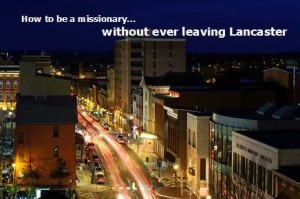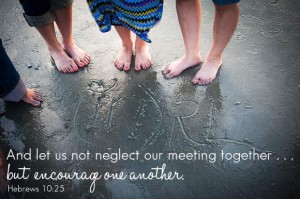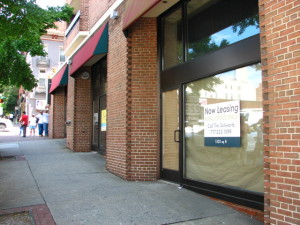 Today we start a four week series entitled #instalife inspired by the art show that we just held on Friday night. The idea behind the art show can best be summed up by the words of the artist who put the work together. Tobias Treppmann says this about #instalife, “In 1998 the movie The Truman Show commented on the then new trend of reality TV cultural voyeurism. Truman was the victim, chosen without his consent, to entertain the world with every little detail of his everyday life. 15 years later we are all Truman, but by choice. The social media revolution has provided a platform on which we can present ourselves to the world and star in our own reality show. #INSTALIFE explores this new facet of our society and the stories we tell about our lives on Instagram. #INSTALIFE seeks to be a cultural commentary on the social sharing phenomenon — on voyeurism, exhibitionism, the desire to curate the way we portray our lives and the stories we tell and on what happens when this content is consumed out of context.
Today we start a four week series entitled #instalife inspired by the art show that we just held on Friday night. The idea behind the art show can best be summed up by the words of the artist who put the work together. Tobias Treppmann says this about #instalife, “In 1998 the movie The Truman Show commented on the then new trend of reality TV cultural voyeurism. Truman was the victim, chosen without his consent, to entertain the world with every little detail of his everyday life. 15 years later we are all Truman, but by choice. The social media revolution has provided a platform on which we can present ourselves to the world and star in our own reality show. #INSTALIFE explores this new facet of our society and the stories we tell about our lives on Instagram. #INSTALIFE seeks to be a cultural commentary on the social sharing phenomenon — on voyeurism, exhibitionism, the desire to curate the way we portray our lives and the stories we tell and on what happens when this content is consumed out of context.
In reference to the movie poster art of The Truman Show #INSTALIFE employs the photomosaic technique to tell a story using public instagram photos with hashtags. Each photo has been replicated as a photomosaic out of hundreds of public instagram photos shared with the same hashtag.”
Our theme derived from the art show deals with the deeper questions of identity. The social media revolution of Facebook, Twitter, and Instagram has provided a platform on which we can present ourselves to the world, star in our own reality show and create our own identity. But where does our identity ultimately come from? From the number of Facebook friends we have? From the number of likes to a picture we post on Instagram? From how many responses we get from a status update? From the online persona that we create on Facebook, twitter, and instagram? Or does our identity come from something much deeper, longer lasting, and more fulfilling? Over the next four weeks we’ll be looking at some of the art that is hanging on our walls, what they might say when it comes to our identity, what we might say about our identity, and what God ultimately has to say about who we are and where we draw our identity from.
Today we are going to be using John 15:13-15 to look at our identity and the word that Jesus uses when it comes to who we really are in Jesus. But before I read the Scripture, let me ask you to play word association with me, Or to define for me the meaning of a word, that we’ll look at more together. When I say friend what does that word mean? Or when I say friend what thoughts, images, words, feelings, come to mind? (spend a few minutes getting the thoughts of the people).
That question, “what does friend mean” was address by a writer when he said, “a friend is a confidant who shares the knowledge of his superior’s purpose and voluntarily adopts it as his own.”
With that understanding in our minds, let’s turn now to John 15:13-15 and what it might have for us in terms of understanding our identity and where it truly comes from. John 15:13-15 are the words of Jesus, and I believe these words concerning our identity and who we truly are in Christ should be louder than the voices in our head and the voice of the evil one, trying to tell us what our identity is and what it isn’t. John 15:13-15 says, “Greater love has no one than this: to lay down one’s life for one’s friends. You are my friends if you do what I command. I no longer call you servants, because a servant does not know his master’s business. Instead, I have called you friends, for everything that I learned from my Father I have made known to you.”
The first thing we see in these verses are the words found in verse 13 which says, Greater love has no one than this: to lay down one’s life for one’s friends. Obviously Jesus is referring to what will take place in his life in the not to distance future. And that he would go to the cross, lay his life down for his disciples, for us, and I believe for the entire world. You see this is where a title that was given to Jesus, maybe as a derogatory term given by the Pharisee’s, comes into play. Jesus was called a Friend of Tax Collectors and sinners. And so if Jesus, while he was bodily on earth, was a friend to sinners, than doesn’t it follow that he was laying his life down for each and every person who has ever walked the face of this earth? Jesus put first a willingness to spend himself for the other, and not grudgingly but eagerly. The great philosopher Aristotle put it like this, “Friendship seems to be in the loving rather than in the being loved.” And so for Jesus, a huge part of being a friend means laying your life down for others. Putting others first and above your own needs, wants, desires, etc….
And so in a very real way, part of everyone’s identity that has ever lived, is this idea of being a friend of Jesus. That deep down in the core of everyone, whether they know Jesus or not, whether they live for him or not, Jesus is and wants to be their friend. Now you may disagree with me on this but I believe Jesus wants to be a friend to everyone but not everyone wants to be a friend of Jesus. And when I read friend, I believe that Jesus is actually for each and every one of us and not against us. Too often people claiming to represent Jesus, forget the fact that he was a friend to sinners and instead somehow make Jesus out to be about judgment and condemnation. No matter where you are with Jesus today, know that he is for you, wants the best for you, and he wants to be a friend to you and for you to be his friend.
Now here is where it gets tricky. Where this might seem like a contradiction, a mystery, or a paradox. Look at verse 14 and how he describes who his friends are, “You are my friends if you do what I command.” If the disciples are loyal to his instructions, he gives them the rank of friends. If we do what Jesus commands, if we obey him, than we are his friends. Now you are starting to see a possible contradiction or mystery. You might be saying, “Ryan..you said Jesus is a friend to everyone but here Jesus is giving a pretty clear statement about who his friends are. It is those who obey him.” And I would say yes. Jesus is a friend to everyone and to those who do what he commands. Maybe we can describe it like this. Jesus is a friend to all but not all want to be a friend of Jesus. So in one sense the friendship that Jesus wants to have with everyone is a one way street, and when we turn around and begin to obey him we make the friendship what it should be, a two way street. And so when we begin to obey “everything that I have commanded” we become a friend.
And then Jesus says these words, “I no longer call you servants, because a servant does not know his master’s business. Instead, I have called you friends, for everything that I learned from my Father I have made known to you.” You see Jesus wants more from us than just mere obedience. He wants us to have a relationship that is more friend than servant. You see a servant is simply an agent doing what his master commands, and often does not understand his master’s purpose. But Jesus takes his friends (us) into his confidence. Also another difference between a servant and a friend is not between diligent obedience and disobedience (or even casual obedience). The difference is between understanding and not understanding. Because friends have a close relationship, they understand while servants do not. And so in real friendship, in real fellowship, the kind that Jesus is spelling out in verses 14-15 there is a trust in the other that believes in him, risks on him, doesn’t doubt his loyalty, but looks toward him with confidence. And that is exactly what Jesus does when he calls us his friend. He believes in us, his risked his life for us, he looks towards us and has taken us into his mission, his purpose, his plan for the renewal of all things. So one of the core identities for those of us who are followers of Jesus, and for those who desire to obtain this identity, is that of friend. Friend of Jesus. When you are tempted to ask “What is my identity? What is it wrapped up in it? Or Who am I?” One of the answers that you should tell yourself when you hear the voices of culture and the evil one seeking to give you another identity is that “I am a friend of Jesus. He wants a relationship with me. He wants the best for me. And he has taken me into his purpose and mission for the world and I can be a part of his renewal and redemption of the world. I am a friend of Jesus.”
And so thinking and praying about the ending of this message, I do what every Pastor does when looking for inspiration, I jumped on Facebook and that is when I found this status from a friend of mine. "What if the basis of our friendship is not based on how little you sin, but based on how much you let me love you? -God" ~John Lynch”
So let’s unpack what it means to base your identity on the fact that you are a friend of Jesus. Have you ever thought about being a friend of Jesus? How can knowing that your identity is one of being a friend of Jesus change your life and your understanding of yourself? And how might understanding that you are a friend of Jesus propel you into a missional kingdom life? Let’s spend some time talking about those questions together.
1. What thoughts, comments, insights, questions, push back, etc.. do you have regarding the Scripture text and the message? 2. Have you ever thought about being a friend of Jesus? Yes or No. If not, why not? How can knowing that your identity is one of being a friend of Jesus change your life and your understanding of yourself? 3. how might understanding that you are a friend of Jesus propel you into a missional kingdom life? 4. What is God saying to you and what are you going to do about it? What is God saying to us and what should we do about it?












